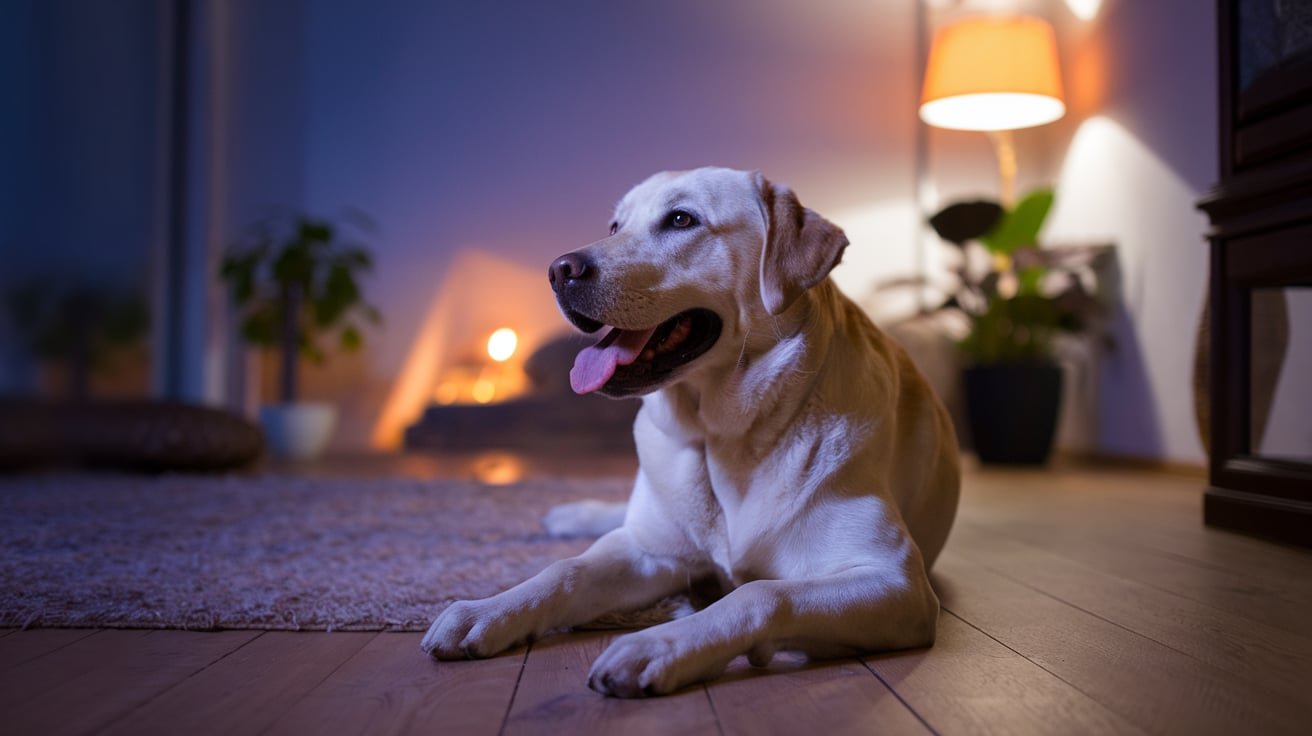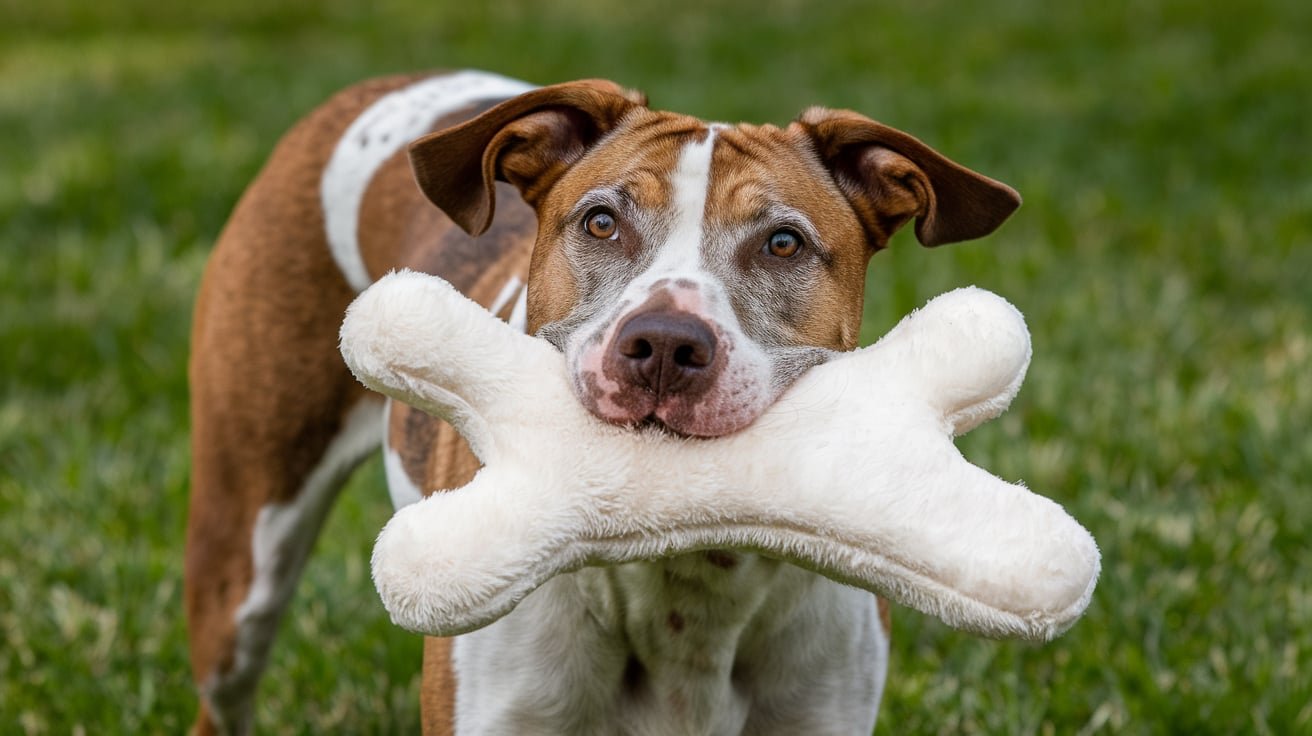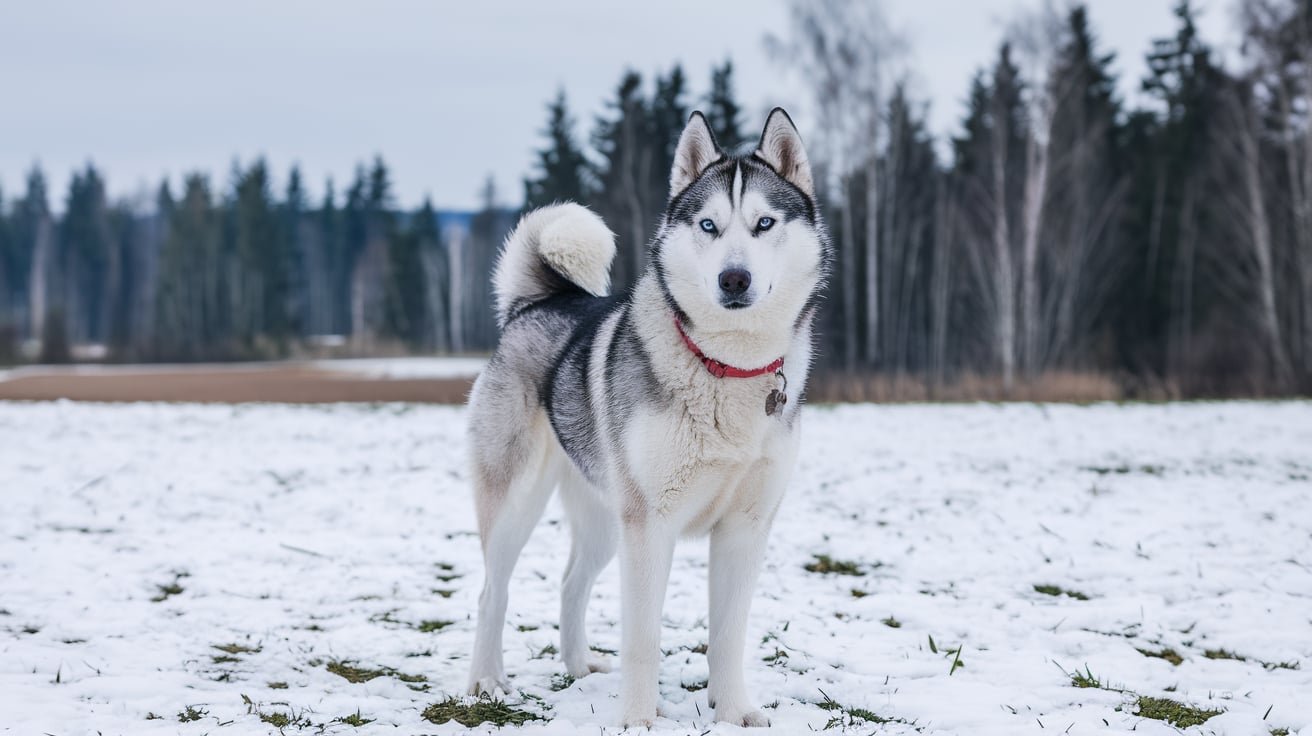Introduction To Why Is My Dog Panting At Night?:
It’s late, you’re winding down, and just as you’re about to drift off to sleep, you hear it: your dog panting. A question comes to mind: Why is my dog panting at night? Is it normal, or could it be a sign of something more serious? For many dog owners, nighttime panting can raise concerns, especially when it seems out of the ordinary.In this detailed guide, we’ll explore the common reasons behind why your dog might be panting at night, when you should worry, and how to help your furry friend feel more comfortable.
What is Panting?
Panting is a natural and common behavior in dogs. It helps them cool down as dogs don’t sweat like humans do. Instead, they use their tongues, breathing rapidly to release heat and regulate body temperature. However, panting that happens frequently at night could signal other underlying issues.
Common Reasons for Nighttime Panting
- Temperature Regulation
One of the most straightforward reasons for a dog panting at night is temperature regulation. If the room is too warm, your dog may pant to cool down. Dogs with thick coats or those that are overweight might feel warmer than others. It’s important to ensure your dog’s sleeping area is well-ventilated and cool. - Stress or Anxiety
Dogs can get anxious just like humans, and anxiety often leads to panting. If your dog is nervous due to loud noises (like fireworks or thunderstorms), separation anxiety, or changes in the environment, nighttime panting may increase. I remember when my Labrador, Bella, had her first night at a new house. She was panting heavily because the new surroundings made her anxious. A few nights later, after settling in, her breathing returned to normal. - Pain or Discomfort
Another reason your dog may be panting at night is pain. Dogs can’t always communicate when something’s wrong, so they might show discomfort through increased breathing. Joint pain, injuries, or internal issues like arthritis or digestive discomfort may cause panting. If you notice excessive panting along with other symptoms like whining or reluctance to move, it’s worth visiting the vet. - Heart Disease
Heart disease is another potential reason for panting. When the heart isn’t functioning properly, your dog may struggle to get enough oxygen, leading to increased breathing. If your dog is older and panting more frequently at night, it could be a sign of congestive heart failure. This is a serious condition that requires immediate attention. - Respiratory Issues
Dogs can suffer from respiratory conditions like bronchitis, pneumonia, or even allergies. These conditions can cause panting due to the lack of oxygen intake. If your dog has a history of respiratory problems, keep an eye out for nighttime panting combined with coughing or wheezing. - Obesity
Dogs that are overweight tend to pant more, especially when they are lying down or trying to sleep. Carrying extra weight can put pressure on their lungs and heart, making it harder for them to breathe normally. A balanced diet and regular exercise are crucial to helping an overweight dog live a healthier and more comfortable life.
When Should You Be Concerned?
While panting is normal in many situations, excessive or unusual panting at night could be a sign that something is wrong. If you notice the following signs, it’s time to consult your vet:
- Excessive panting that doesn’t stop after a few minutes
- Panting accompanied by other symptoms like lethargy, vomiting, or coughing
- Labored breathing or difficulty catching their breath
- Panting that worsens over time
These symptoms could indicate a serious issue, such as heart disease or respiratory problems, that requires professional attention.
Step-by-Step Guide: How to Help Your Dog
If your dog’s nighttime panting is becoming a problem, here’s a step-by-step guide to help ease their discomfort:
- Check the Temperature
Ensure the room is cool enough for your dog. You can use fans or air conditioning, especially during the warmer months. Dogs with heavy coats might benefit from a cool mat or ventilated bed. - Provide Fresh Water
Dehydration can cause panting, so make sure your dog has access to clean, fresh water throughout the night. Consider placing a water bowl near their bed for convenience. - Create a Comfortable Sleeping Environment
If your dog is stressed or anxious, creating a calm and safe environment can help. Use calming music, a white noise machine, or a weighted blanket to provide comfort. If they suffer from separation anxiety, you may want to allow them to sleep closer to you. - Regular Vet Checkups
Schedule regular vet visits to monitor your dog’s heart and lung health. If your dog is older or has a history of health problems, frequent checkups can help catch any issues early. - Consider Weight Management
If obesity is the cause of your dog’s panting, it’s important to work with your vet on a weight management plan. A combination of a healthy diet and regular exercise can help reduce the pressure on your dog’s body and improve their overall health. - Address Anxiety Issues
If panting is due to stress or anxiety, talk to your vet about potential solutions. In some cases, anti-anxiety medications or supplements can help. Alternatively, behavioral training or desensitization techniques may reduce anxiety over time.
A Story of Overcoming Nighttime Panting
Let me share a story about Max, a 7-year-old Border Collie. His owner, Emily, noticed that Max would pant heavily at night, especially during thunderstorms. Max had always been an anxious dog, and the thunderstorms in their area made him extremely uncomfortable. After consulting with a vet, Emily tried a thunder jacket, which provides gentle pressure to help relieve anxiety in dogs. This, combined with playing soothing music during storms, drastically reduced Max’s nighttime panting. Sometimes, it’s all about finding the right solution for your dog’s specific needs.
Products That Can Help
If your dog is panting at night due to anxiety, discomfort, or temperature, there are several products on the market that can help:
- Cooling Mats: These are great for keeping your dog cool during hot summer nights.
- Calming Beds: Orthopedic and memory foam beds offer extra support for dogs with joint pain.
- Weighted Blankets: These blankets provide gentle pressure, which can be calming for anxious dogs.
- Anxiety Jackets: These jackets apply constant, gentle pressure to help reduce anxiety during stressful situations.
- Air Purifiers: If allergies are causing your dog to pant, an air purifier can help remove allergens from the air and improve their breathing.
Conclusion: Why Is Your Dog Panting at Night?
In most cases, nighttime panting is nothing to worry about and can be resolved by making small adjustments to your dog’s sleeping environment. However, it’s important to be aware of the signs that indicate a more serious issue, such as heart disease, pain, or respiratory problems. Always monitor your dog’s behavior and consult a vet if you notice any unusual changes.
With the right care and attention, you can help your dog sleep more comfortably at night and reduce panting.



